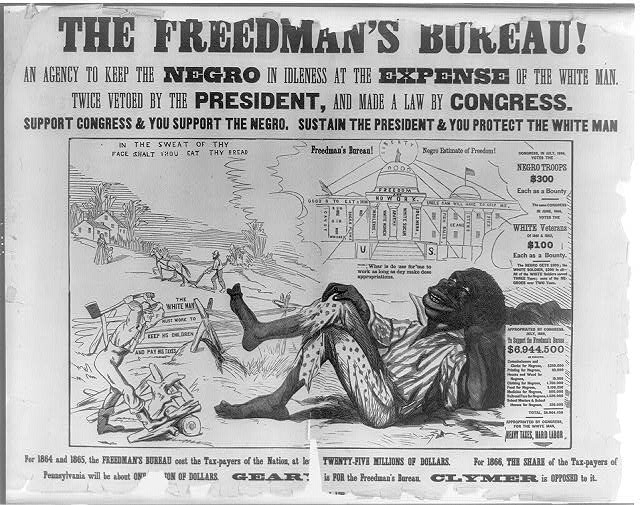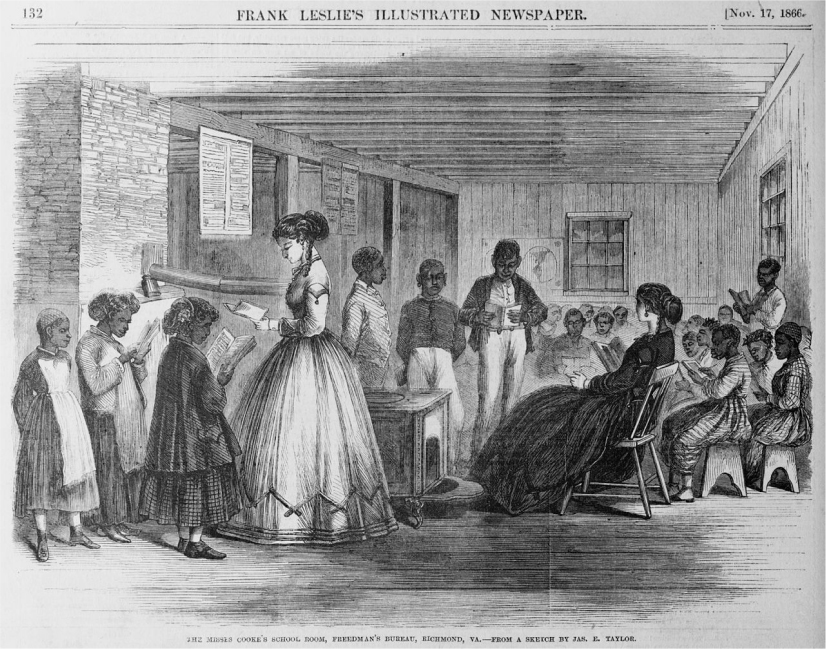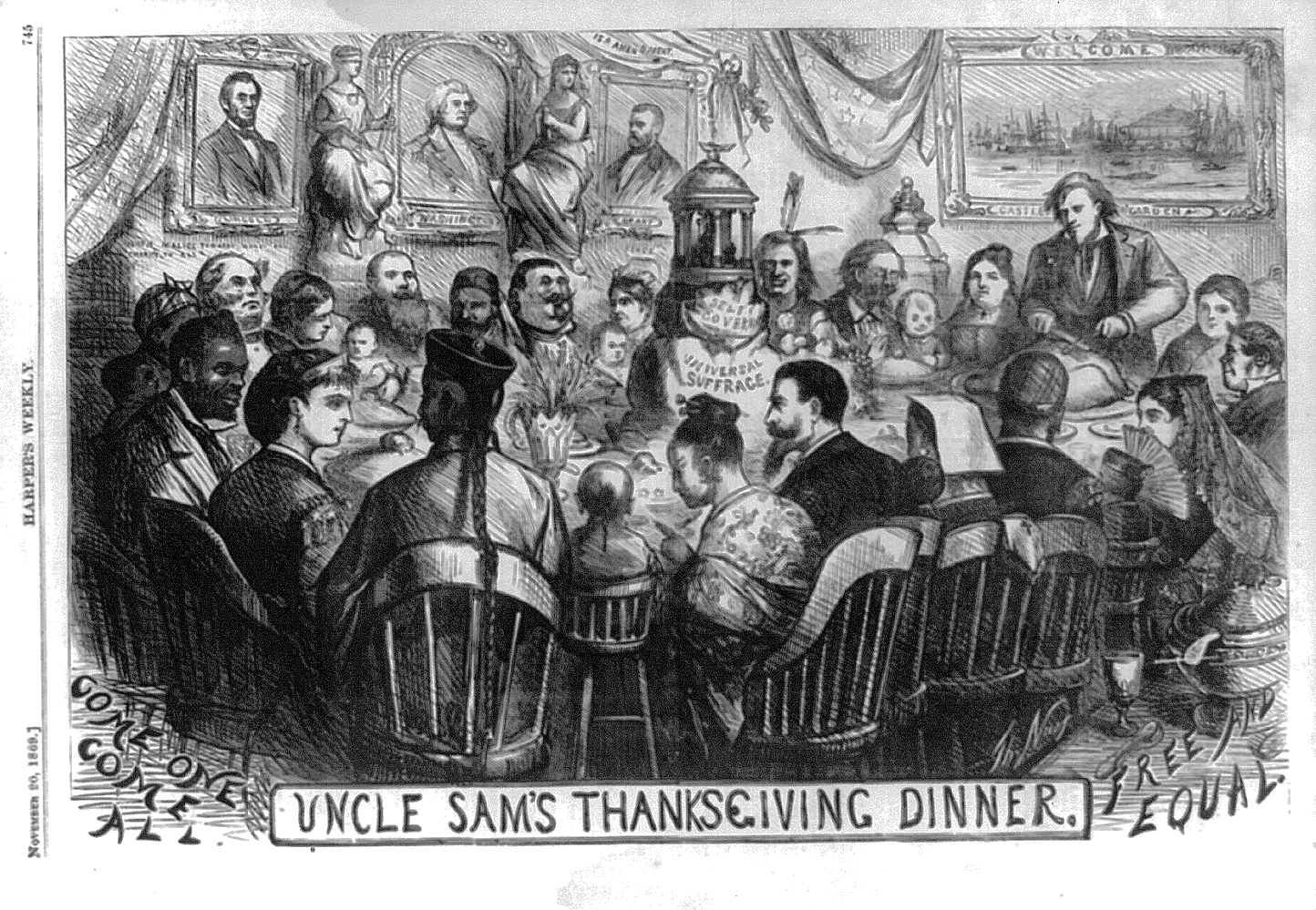Unit 9: Reconstruction Scaffolded Deconstructed DBQ Assignment Sheet and Document Set
Scaffolded Document Set that addresses the question: How successful was Reconstruction in addressing the challenges of rebuilding the nation and ensuring equal rights for African Americans?
Instructions
Read and analyze each document in the set. Use the vocabulary to support your understanding and/or take notes on a piece of paper as you read. Then, use the graphic organizer to plan your response to the question. The graphic organizer has more information and support to understand the task.
In your response you should:
- Respond to the prompt with a defensible thesis that establishes a line of reasoning.
- Use relevant evidence from the documents to support your thesis and line of reasoning.
- Group the sources (documents) based on similarities or connections.
- Analyze the sources (documents) using the VIEW technique.
- Provide historical context for primary source documents.
DBQ Question: How successful was Reconstruction in addressing the challenges of rebuilding the nation and ensuring equal rights for African Americans?
Documents
Document A: The Thirteenth Amendment Section 1 (1865)
| Neither slavery nor involuntary servitude, except as a punishment for crime whereof the party shall have been duly convicted, shall exist within the United States, or any place subject to their jurisdiction. | party- in this case, a person
duly convicted- found guilty after legal process jurisdiction- the official power to make judgements or decisions |
Analysis Questions:
|
|
Document B: The Fourteenth Amendment Section 1 (1868)
| All persons born or naturalized in the United States, and subject to the jurisdiction thereof, are citizens of the United States and of the State wherein they reside. No State shall make or enforce any law which shall abridge the privileges or immunities of citizens of the United States; nor shall any State deprive any person of life, liberty, or property, without due process of law; nor deny to any person within its jurisdiction the equal protection of the laws. | naturalized- to become a citizen through a process
jurisdiction- the official power to make judgements or decisions reside- live abridge the privileges and immunities- reduce fundamental rights and protections due process of law- the system of laws and courts |
Analysis Questions:
|
|
Document C: The Fifteenth Amendment Section 1 (1870)
| The right of citizens of the United States to vote shall not be denied or abridged by the United States or by any State on account of race, color, or previous condition of servitude | abridged- reduced
previous condition of servitude- whether or not the person used to be a slave. |
Analysis Questions:
|
|
Document D: The Freedman’s Bureau! (1866)
 |
“The Freedman’s Bureau- An agency to keep the negro in idleness at the expense of the white man. Twice vetoed by the president, and made law by Congress. Support Congress and you support the negro. Sustain the president & you protect the white man.” |
Analysis Questions:
|
|
Document E: Classrooms for Black Children (1866)
 |
The Misses Cooke’s school room, Freedman’s Bureau, Richmond, Va. from a sketch by Jas. E. Taylor. |
Analysis Questions:
|
|
Document F: President Johnson Veto Message of the Civil Rights Act of 1866
| Four millions of them have just emerged from slavery into freedom. Can it be reasonably supposed that they possess the requisite qualifications to entitle them to all the privileges and immunities of citizens of the United States?
Have the people of the several States expressed such a conviction? It may also be asked whether it is necessary that they should be declared citizens in order that they may be secured in the enjoyment of the civil rights proposed to be conferred by the bill. |
requisite qualifications –required qualities or skills
privileges and immunities-fundamental rights and protections conviction- certain understanding or strong feeling the civil rights proposed- The Civil Rights Act of 1866 guaranteed property and legal rights to all U.S. citizens. conferred- granted
|
| Those rights are, by Federal as well as State laws, secured to all domiciled aliens and foreigners, even before the completion of the process of naturalization; and it may safely be assumed that the same enactments are sufficient to give like protection and benefits to those for whom this bill provides special legislation.
Besides, the policy of the Government from its origin to the present time seems to have been that persons who are strangers to and unfamiliar with our institutions and our laws should pass through a certain probation, at the end of which, before attaining the coveted prize, they must give evidence of their fitness to receive and to exercise the rights of citizens as contemplated by the Constitution of the United States. |
domiciled aliens and foreigners- citizens of other nations living in the U.S.
naturalization- to become a citizen through a process enactments- bills or legislation sufficient– enough probation- period of observing a person for good behavior the coveted prize- citizenship contemplated– considered for a long time |
| The bill in effect proposes a discrimination against large numbers of intelligent, worthy, and patriotic foreigners, and in favor of the Negro, to whom, after long years of bondage, the avenues to freedom and intelligence have just now been suddenly opened. | discrimination– unfair treatment based on a certain attribute like race or gender
bondage- enslavement |
| He must of necessity, from his previous unfortunate condition of servitude, be less informed as to the nature and character of our institutions than he who, coming from abroad, has, to some extent at least, familiarized himself with the principles of a Government to which he voluntarily intrusts “life, liberty, and the pursuit of happiness.” | unfortunate condition of servitude- enslavement
the nature and character of our institutions– how processes and system work abroad- other nations far away |
| Yet it is now proposed, by a single legislative enactment, to confer the rights of citizens upon all persons of African descent born within the extended limits of the United States, while persons of foreign birth who make our land their home must undergo a probation of five years, and can only then become citizens upon proof that they are of good moral character, attached to the principles of the Constitution of the United States, and well disposed to the good order and happiness of the same. | legislative enactment- law or act
confer- give well disposed- positive attitude or favorable feelings the same- refers to “the principles of the Constitution of the United States” |
Analysis Questions:
|
|
Document G: Uncle Sam’s Thanksgiving (1869)

|
“Come One, Come All”
“Free and Equal” |
Analysis Questions:
|
|